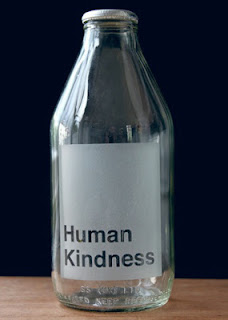There was a clear hierarchy of jobs in my mother’s
view of the world, and it started at the bottom: If you were stupid and lazy, you
would be relegated to a life of “digging ditches,” or, more peculiarly, you’d
be “nothing but a hod carrier.” I was always a little hazy on the nature of
hods, but clear on the contempt with which she held their transporters.
Just a rung above those jobs, in my mother’s mind, was
any occupation in which “you were on your feet all day.” That view is certainly ironic
these days, given the health horrors now associated with a life spent sitting
down. (“Enjoying your comfy couch? You’re about to DROP DEAD!”) But Katherine
Kendrick was a woman of firm opinions, and she never wavered in her belief that
an eight-hour shift spent on one’s feet was a miserable fate.
I have never before considered why those circumstances would be such an object of dread for her. That’s because, I now realize, I’ve never
thought about the particulars of my mother’s feet before. This, however, seems
to be the year in which I begin to reflect on her life, and mine, from the ground up. Genetics have
caught up with me, and the poor quality of my flat and misshapen Irish feet has
suddenly become a top-of-mind — or is that bottom-of-foot? — issue in my life. This
is the year I’ve developed a close relationship with my podiatrist, have
learned how to swallow handfuls of aspirin without water, and have begun to place
significant value on the joy to be found in owning several pairs of comfortable shoes.
An ad for the Chase, circa 1968. Check out those room rates.
The job may have been great for expanding her world view,
but it played hell on her feet. Every night, she wore a nice dress, a
girdle, and a pair of incredibly pointy-toed high heels. The floor in the hat
check room was concrete. She was in her mid-forties. Why did I never put these facts together and think
about how much her feet hurt? One summer, our family was even more strapped for cash
than usual, and she took a second job, working during the day as a hostess at a tony restaurant. I
remember her talking about the restaurant's terrazzo floors as if they were land mines. Now
I understand why.
When she and I traveled together, or when she came to visit
me, I remember seeing lots of foot-related doo-dads — corn plasters and foot
tape and bunion pads. Toward the end of her life, she had a hammer toe so
severe that the toe had to be amputated. I was concerned for her, but still unaware
of how it might feel for her to take a step, and seemingly unable to imagine it. I am
sorry to report that I can remember telling her to hurry up, or to walk faster.
“Stop being such an old lady,” I would tell her. She would laugh, and try to
speed up. Oh mom.
Yesterday, in the shoe department of the Land’s End inlet store,
it all came crashing in on me. I was browsing through the winter shoes, looking
for some safe choices among all the things that hadn’t sold, and when I sat
down to try a pair, I hesitated. I didn’t want to take my current shoes off,
because that would hurt. I didn’t want to put the new pair on, which I was
already eyeing with the suspicion that they’d inflict a new level of discomfort in some sore place I didn't know about yet. And
then I remembered shopping for shoes with my mom, how sometimes just looking at
a pair of shoes would make her wince.
Of course, I thought, sitting there immobile in the brightly lit store, staring across at a rack of potentially uncomfortable footwear. Now I have my mother’s feet. Now I understand what it felt like for her to stand up, and work, and walk. And now it’s too late for me to tell her. I miss her for many reasons, and I’m sure that sharing stories of foot pain would not the first thing I’d want to do if I ever get the chance. Mostly, I’m just thinking about my understanding, and how dim it was before, and how clear it is now. I hope, I really hope, that she’s finally had a chance to put her feet up somewhere comfortable.
Of course, I thought, sitting there immobile in the brightly lit store, staring across at a rack of potentially uncomfortable footwear. Now I have my mother’s feet. Now I understand what it felt like for her to stand up, and work, and walk. And now it’s too late for me to tell her. I miss her for many reasons, and I’m sure that sharing stories of foot pain would not the first thing I’d want to do if I ever get the chance. Mostly, I’m just thinking about my understanding, and how dim it was before, and how clear it is now. I hope, I really hope, that she’s finally had a chance to put her feet up somewhere comfortable.










